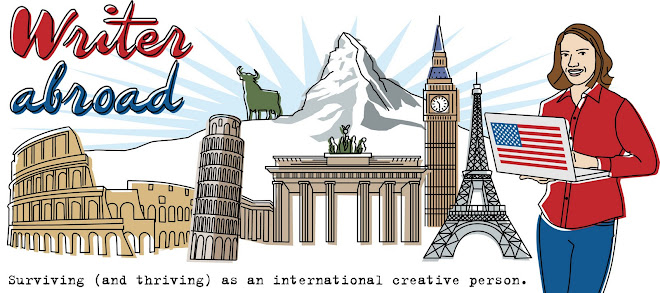A few weeks ago, Writer Abroad was introduced to one of her husband’s co-workers. He asked
if she had gone back to work (her day job is copywriting) after the
baby was born.
“Yes, after a six month leave, I went back to work 60%,” she said.
“Oh,” he said. “Doing the 'Swiss woman' thing, I see.”
 At first, Writer Abroad was slightly offended. But then she
smiled because it was kind of true. And also because it was kind of nice that part-time work was accepted as something professional people did in Switzerland.
At first, Writer Abroad was slightly offended. But then she
smiled because it was kind of true. And also because it was kind of nice that part-time work was accepted as something professional people did in Switzerland.
Writer Abroad tells this story because of a recent article
in The Atlantic entitled, Why Women Still Can’t Have It All, by Anne-Marie Slaughter. It discusses why American women with families are still struggling to reach the top of their professions. One of the main reasons is that employers do not place very high value on workers who value their family time (especially those who dare to express it).
Things are a bit different in Switzerland. Some may call it
old-fashioned. Because here, it is still acceptable (even encouraged) for professionals to put
family first. For Writer Abroad, it was no big deal to take a six-month leave from her ad agency in Zurich (also easy to do when health benefits aren’t tied to employment) and come back part-time.
But here’s the interesting thing: in Switzerland, fathers do
the part-time thing too. Writer Abroad knows several couples that recently had children, and
both the mother and father each went back to work at 80% (four days a week). They are engineers and lawyers and journalists. They will
probably go back full-time when their children go to school. In this way, many
professionals in Switzerland already appear to practice the "irregular stair step method," as Slaughter recommends for slightly non-linear career progression.
Of course, there are other aspects of Swiss life that are
far from perfect for women to really have it all. Many schools have varying start times depending on the day of
the week, and many children still have two hour lunch breaks where someone is
expected to be at home to feed them. And store hours aren’t exactly late-night
worker friendly either. All of these things are slowly changing, but it's yet to be seen whether they will change fast enough for Writer Abroad, if she chooses to continue living in Switzerland.
But it does beg the question–is there a place in the world that really has it figured out?
Please, those of you reading this with day jobs, how is family valued in the country you work in? Is your place somewhere where women can have it all?

